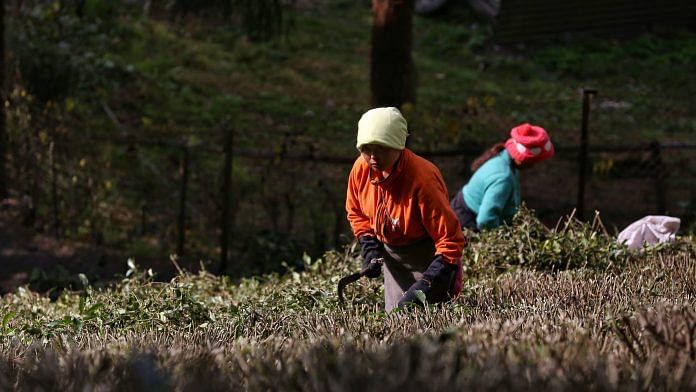Darjeeling: The Banerjee family eagerly waits for the pot of freshly brewed vintage white tea at Margaret’s Deck Tea Lounge near Kurseong. With each sip of the ‘Champagne of Teas’, the nuanced notes of the steeped leaves work their magic. “Fantastic!” declares Sanjay, not letting go of the cup, allowing its warmth to seep into his fingers. At the popular cafe in Kurseong, a two-cup pot of this white vintage costs Rs 500.
Back at a tea garden in Darjeeling’s Lebong, Prerna Gurung counts her wages for the day. She’s earned Rs 230 for eight hours of sweat and labour. It’s a thankless job, but Prerna continues to work at the tea garden, in the hope that one day she will earn more money—at least enough to cover her daily needs.
Discontent is brewing among Darjeeling’s more than one lakh tea workers—both permanent and temporary. But labour is only one of the many challenges that the ailing tea industry has to overcome. Nepal and climate change are taking huge gulps out of the yield and sale of the district’s tea leaves.
“Before the 2017 political violence [over the demand for a separate statehood of Gorkhaland], Darjeeling would produce 14 million kilograms of tea. This year [2022], it has produced approximately 6.7 million kgs only. Labour is one factor, but the bigger concerns are the climate and steep competition from cheap versions of tea from Nepal,” says BK Saria, chairperson of Darjeeling Tea Association. There are 87 tea gardens in Darjeeling and all are functional.
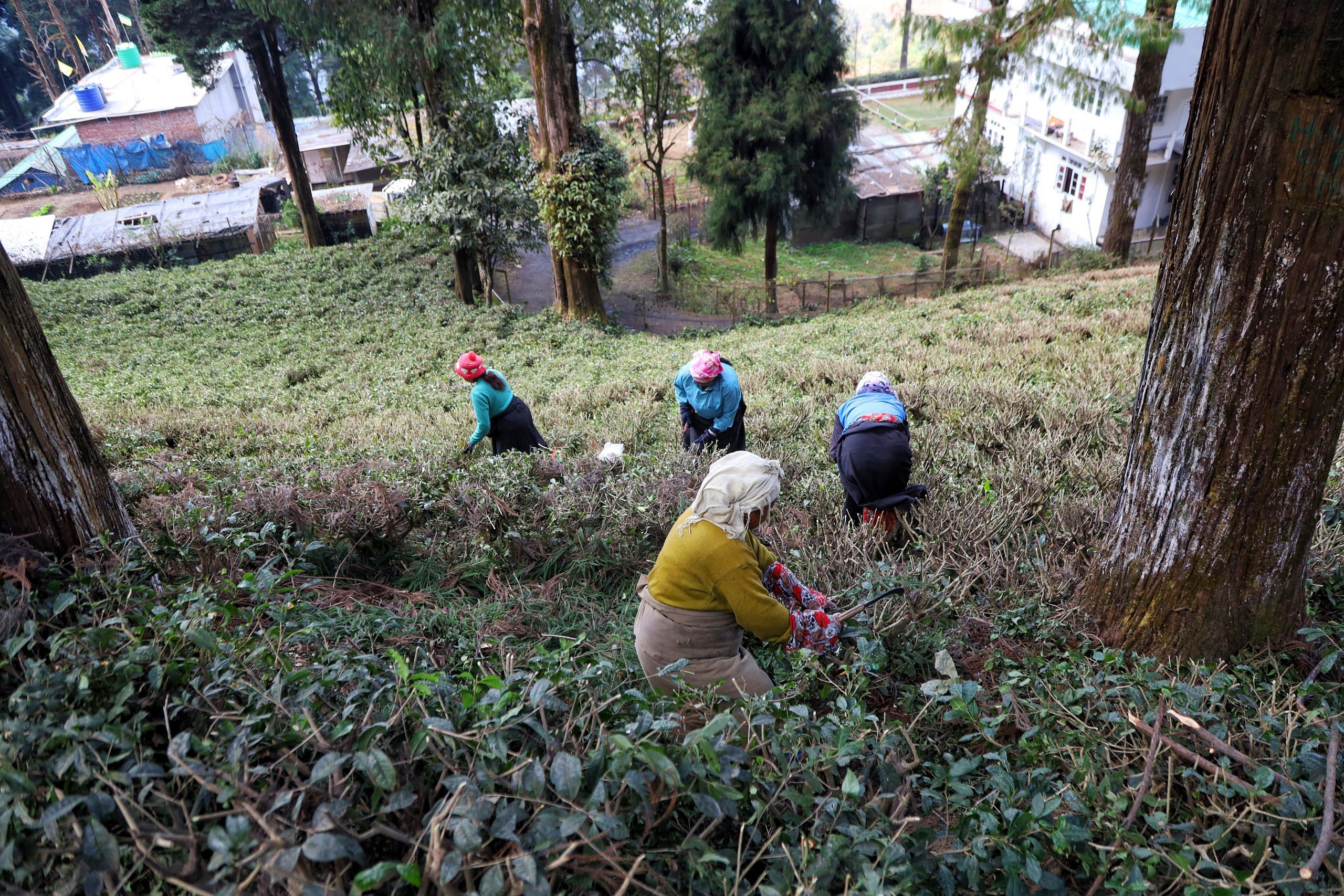
Also read: It’s premium Darjeeling Tea, but from Nepal: How ‘fake’ tea is threatening the pride of India
The Nepal problem
Darjeeling shares its longest international border with Nepal, running through 101 km. Low quality leaves from the neighbouring country’s nascent but already thriving tea industry is making its way into India, much to the dismay of local tea planters.
Under the central government’s Free Trade Agreement, tea from Nepal can be imported without duty.
“Nepal’s trade policies help them push cheaper versions of tea against our Darjeeling tea. It’s the biggest threat today,” says Saria.
In 2021, Nepal exported 11.47 million kg of tea to India. In 2022, nearly 10.5 million kg of Nepal tea reportedly entered India till October. Now, planters are urging the government to take measures to protect Darjeeling tea, which was the first Indian product to receive a Geographical Indication or GI tag in 2004.
“We want the Indian government to impose 100% import duty on Nepal tea to save Darjeeling tea. Even Bangladesh charges 85% import duty on Indian tea to save their industry,” says Saria.
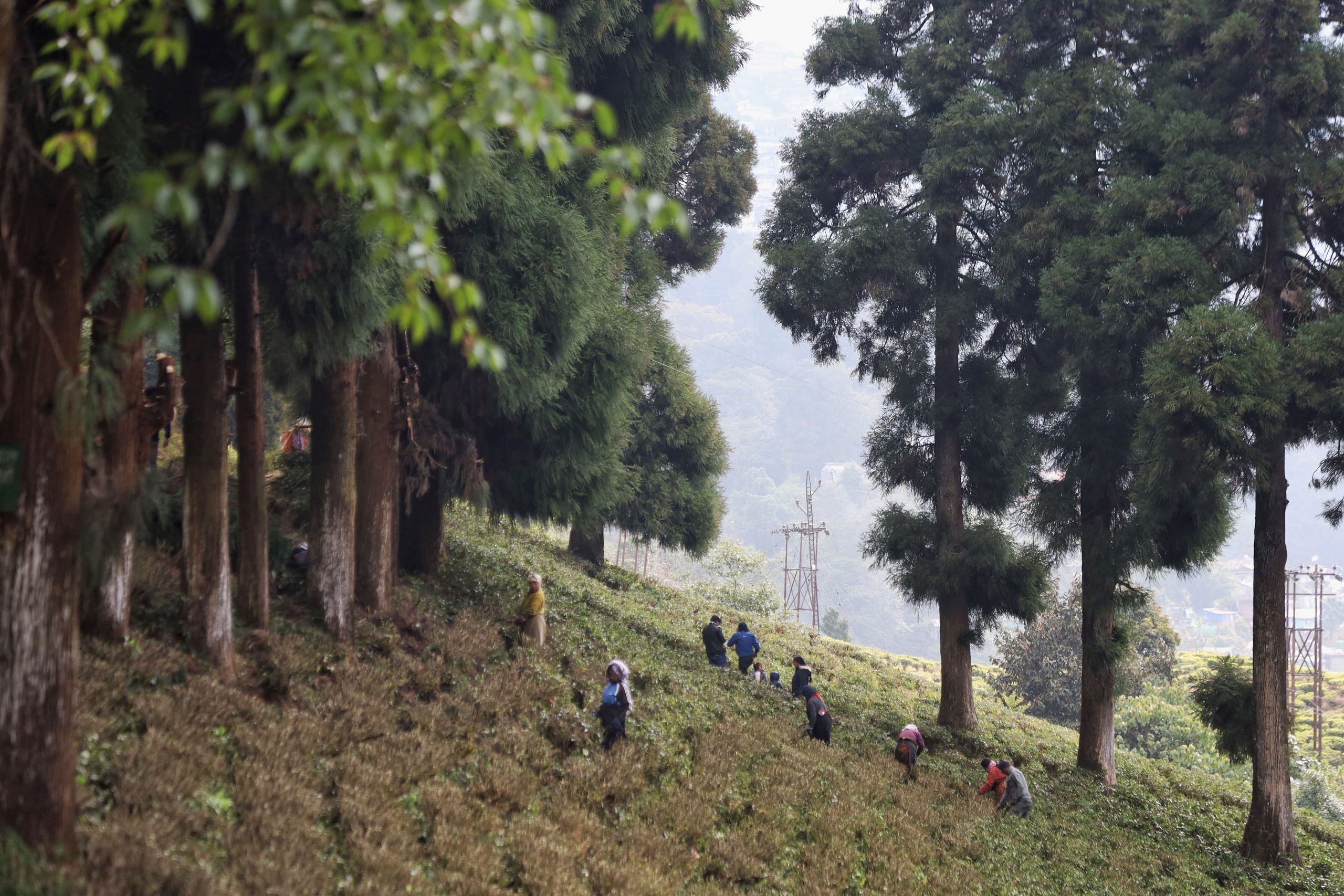
In 2020-21, Nepal produced over 23,000 tonnes of tea, but the quality was poor. Their bushes are comparatively young and quality checks are not as stringent as they are in Darjeeling’s tea gardens. It’s a sore point with tea garden owners here.
“What’s worse is that Nepal tea is often sold as fake Darjeeling tea. And because of its low grade, the price is much cheaper than authentic Darjeeling tea, and it flies off the shelves,” claims Saria.
Indian tea traders claim that Darjeeling tea costs Rs 300-400 per kg at auctions whereas the starting bids for Nepal tea is less than Rs 150 per kg. “This has hampered the sale of original Darjeeling tea and also slowed down the recovery of the tea business after Covid. Unless the government of India intervenes and imposes restrictions, it will be tough for Darjeeling tea to survive,” Saria adds.
About 75 per cent of the tea grown in Darjeeling is exported to countries in Asia, Europe, Middle East and now even America.
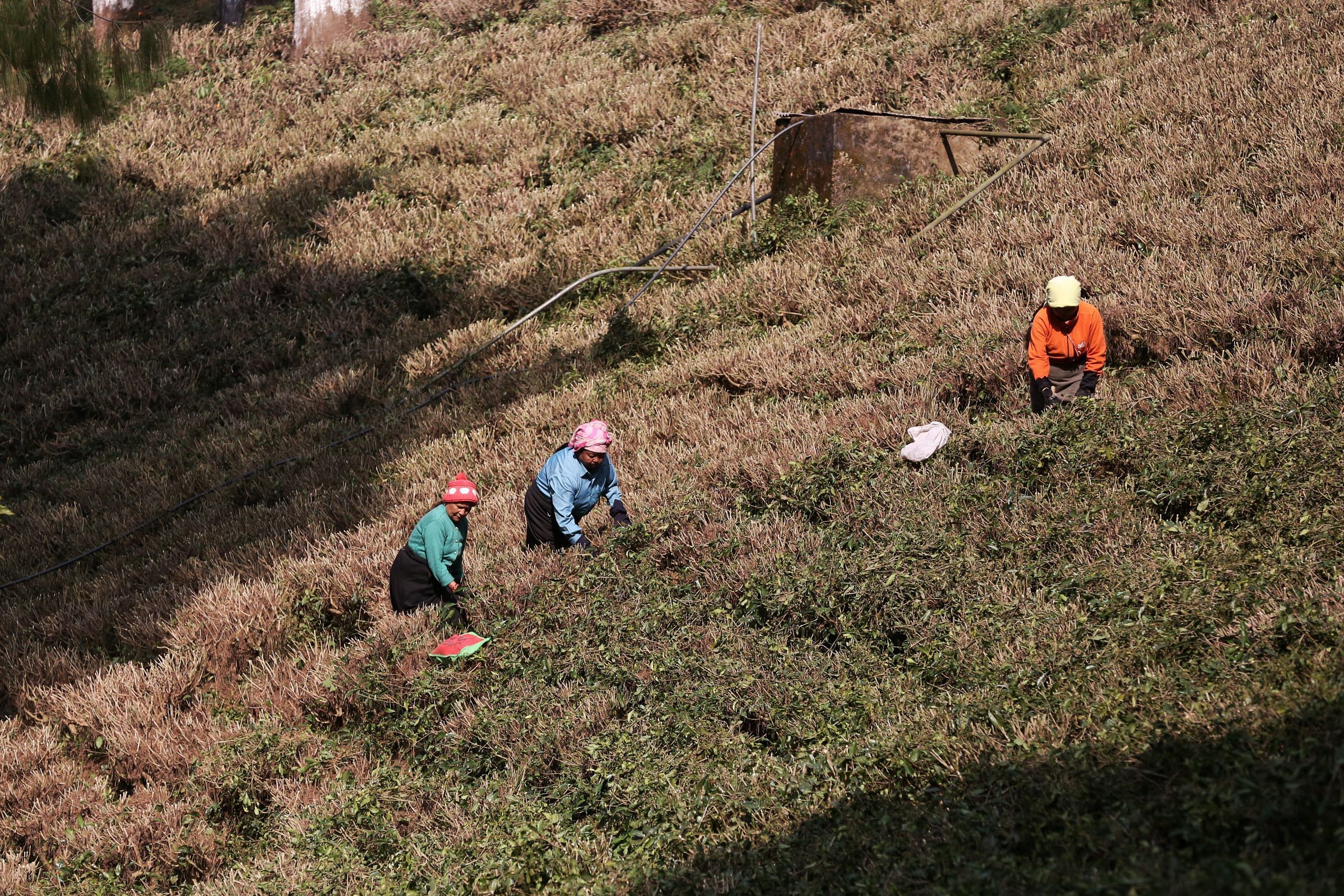
But Sailesh Sarda, the fourth-generation owner of Nathmulls Tea of Darjeeling, is more optimistic. “Darjeeling tea will remain popular and won’t go off market. You will be shocked to see the hefty price at which tea is exported from here. The premium tea gets sold abroad for millions. And now, even the American market is opening, giving the tea industry more business. The market within our country, though, is saturated,” said Sarda.
Saria is not convinced.
“The auction prices of Darjeeling tea have not budged. Tea isn’t fetching high bids, which in turn is triggering financial stress on the producers. They will have to balance with cost cutting,” he says.
And it’s the workers who are paying the price.
Also read: Indian tea is world famous, but our exports are still behind Kenya, China and Sri Lanka
Stuck in a hard place
Forty-five-year-old Prerna Gurung started working at a tea estate in Darjeeling’s Lebong, about 30 years ago when she moved there after marriage.
“This is where I spent eight-hours a day,” Prerna said, cutting the tea bushes on the slopes overlooking Kanchenjunga. The plucking season is over. Through the winter months, tea workers of Darjeeling will clean the gardens and prune the bushes, preparing them for cultivation in the spring next year.
Prerna is the sole breadwinner for her family of seven. Her husband is a cancer survivor who can no longer work in the tea gardens. Their daughter, who studies in Class 11, dreams of becoming an air hostess. But Prerna is bogged down by the responsibility of meeting her family’s needs on a salary of Rs 6,900.
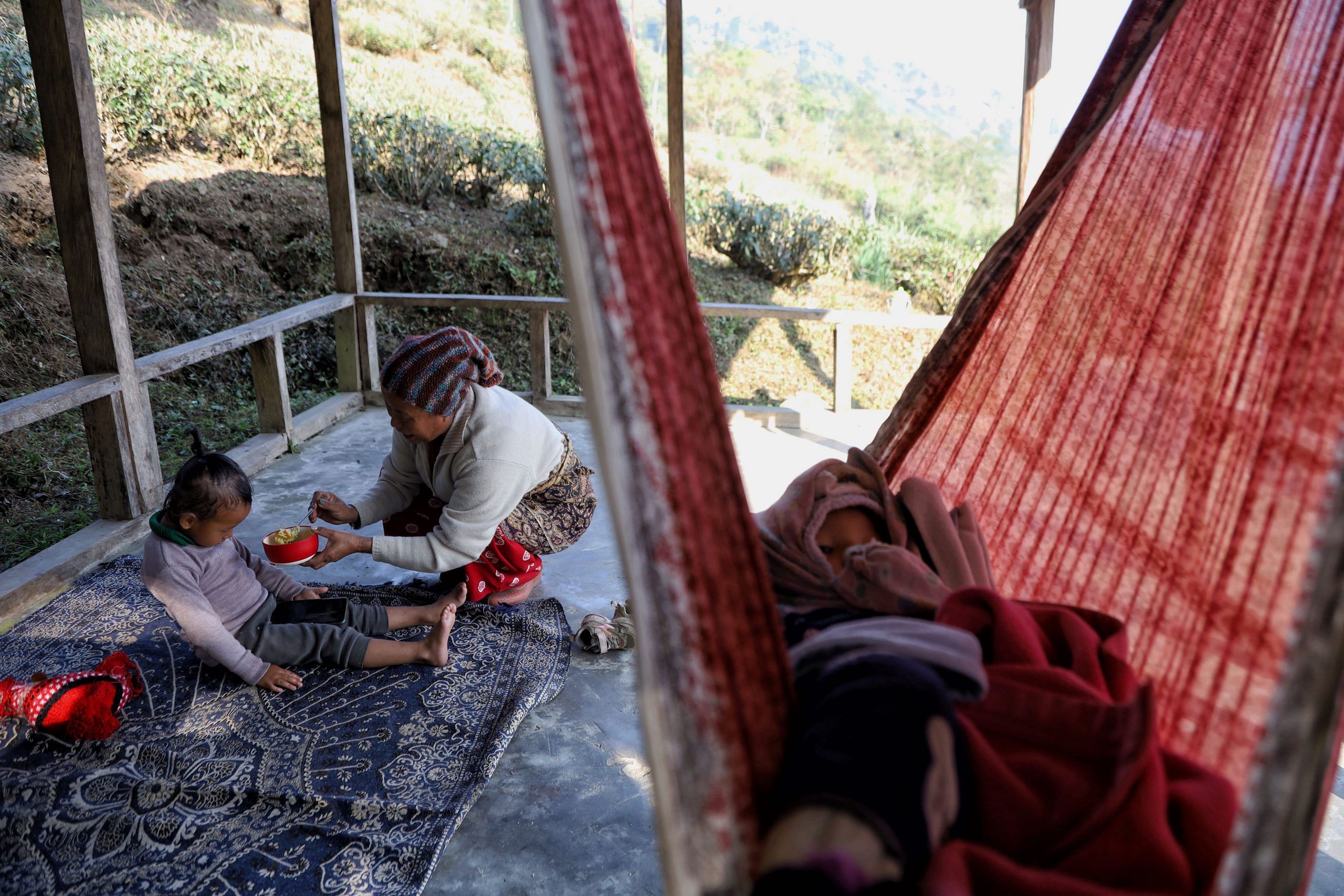
“Our salary comes in two instalments, and if we are absent, we don’t get paid for the day. Everything is so expensive these days, it’s very tough to keep everyone at home happy with such a poor pay,” says Prerna.
Six days a week, she wakes up at 5am, prepares food for her family, cleans the house, gets ready for work and reaches the tea garden by 7am. After a 15-minute uphill walk, she begins work in the garden.
“Some nights when I go back home, there is so much fatigue, but I don’t have an option. I cook dinner, serve food and go to bed after cleaning the utensils,” said Prerna. “As a tea worker, we don’t get any benefits. Even the boots we wear are bought with our own money.”
For her children to go to a school in Darjeeling, she has to set aside Rs 100 for the 10-km commute. “It takes Rs 50 to go and Rs 50 to return. That’s Rs 100 deducted from my daily wage of Rs 230,” she says.
Like Prerna, thousands of tea garden workers are fighting to be heard.
There are about 60,000 permanent tea workers and more than 80,000 temporary workers across the tea gardens in the hills, as per data from the Tea Trade Union of Darjeeling.
“The tea gardens are an emotion for us, it’s what gives Darjeeling its identity. But it is the most neglected sector. Tea is the largest industry here, but workers’ demands for higher wages and proper living conditions is basic. I’ve seen four generations of tea workers in my family, we deserve a life of dignity,” said Jayant Rai, general secretary at the trade union wing of Hamro Party, which runs the Darjeeling Municipality.
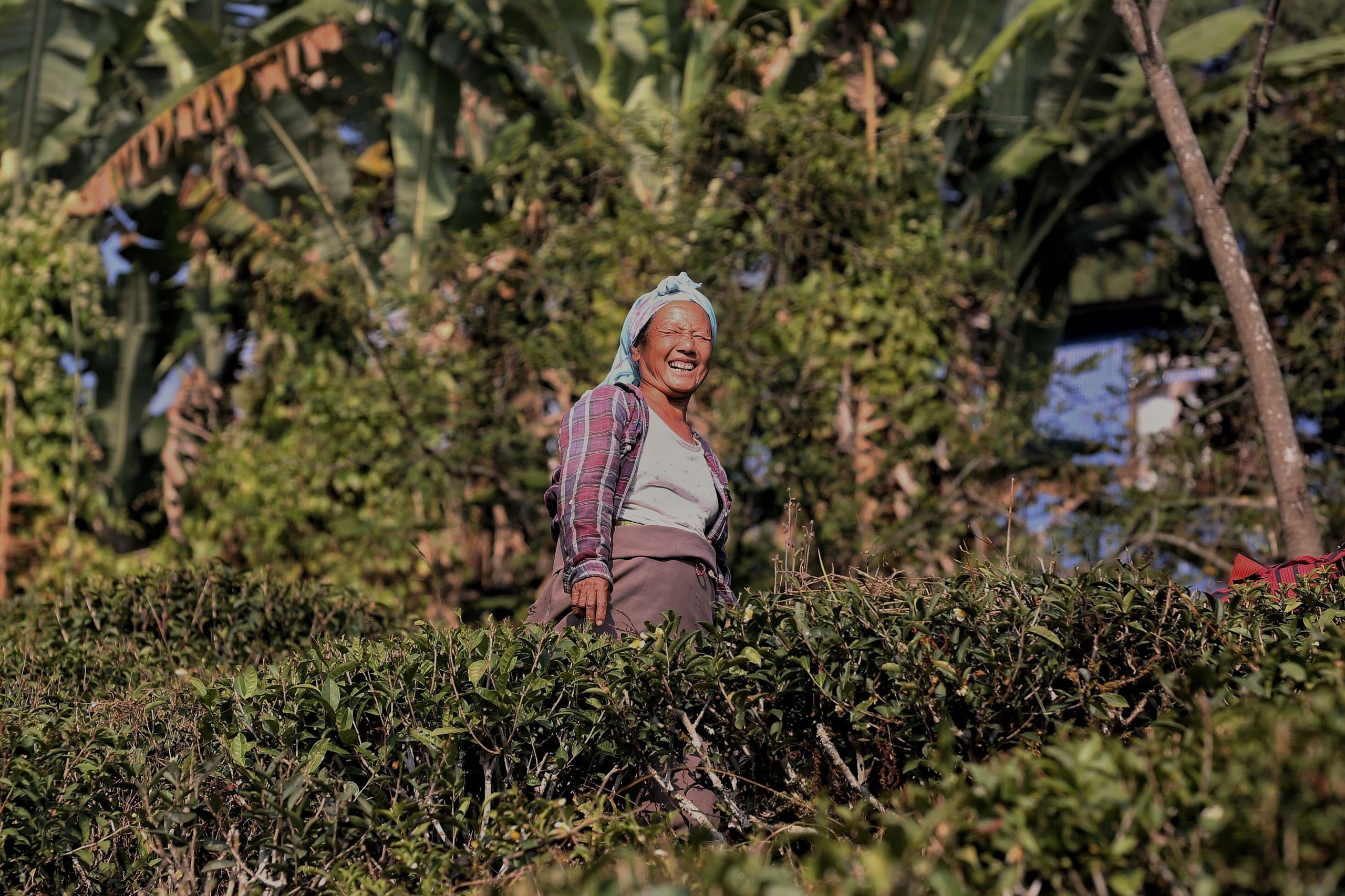
In September 2022, Hamro Party chief Ajoy Edwards spearheaded a campaign to seek a bonus for tea garden workers. At one tea garden near Darjeeling, workers were reportedly protesting over their unpaid annual puja bonus. Edwards drew blood from his hand and sprinkled it on the tea bushes. And so began the #BloodTea campaign, which drew criticism from the tea industry. Tea planters in Darjeeling accused Edwards of furthering his own political interests and urged the state government to act against this “false campaign”.
But the campaign brought workers’ rights back into focus.
“Darjeeling tea has a GI tag, but the condition of this industry is crippling. Tea gardens are the backbone of Darjeeling. We will continue to fight for the tea workers until they receive what they deserve,” Edwards told ThePrint.
Darjeeling tea garden workers come under the Plantations Labour Act 1951, which entitles them to a bonus, provident fund, housing, gratuity, protective clothing, aprons, umbrella, ration, free medical facilities, and other incentives. But as per reports, 15 to 20 tea gardens are finding it tough to pay wages and bonuses to their workers due to declining profits and lower yields.
Also read: How British used Indian Railways, free cups, and targeted women to make Indians tea drinkers
Climate change
Over the years, tea garden owners have noticed that extreme weather events attributed to climate change are affecting not just yield but also the aroma of the tea.
Darjeeling is the only region in the world that produces tea in all four seasons or flushes/harvest. Each flush has its own distinctive aroma, colour and flavour. But climate change is a big concern now because it drastically reduces the harvest season.
“Dry winters, less rainfall and landslides have hampered the tea plucking seasons. Erratic weather is posing a big problem for tea pluckers because it is shrinking the yield,” said Saria.
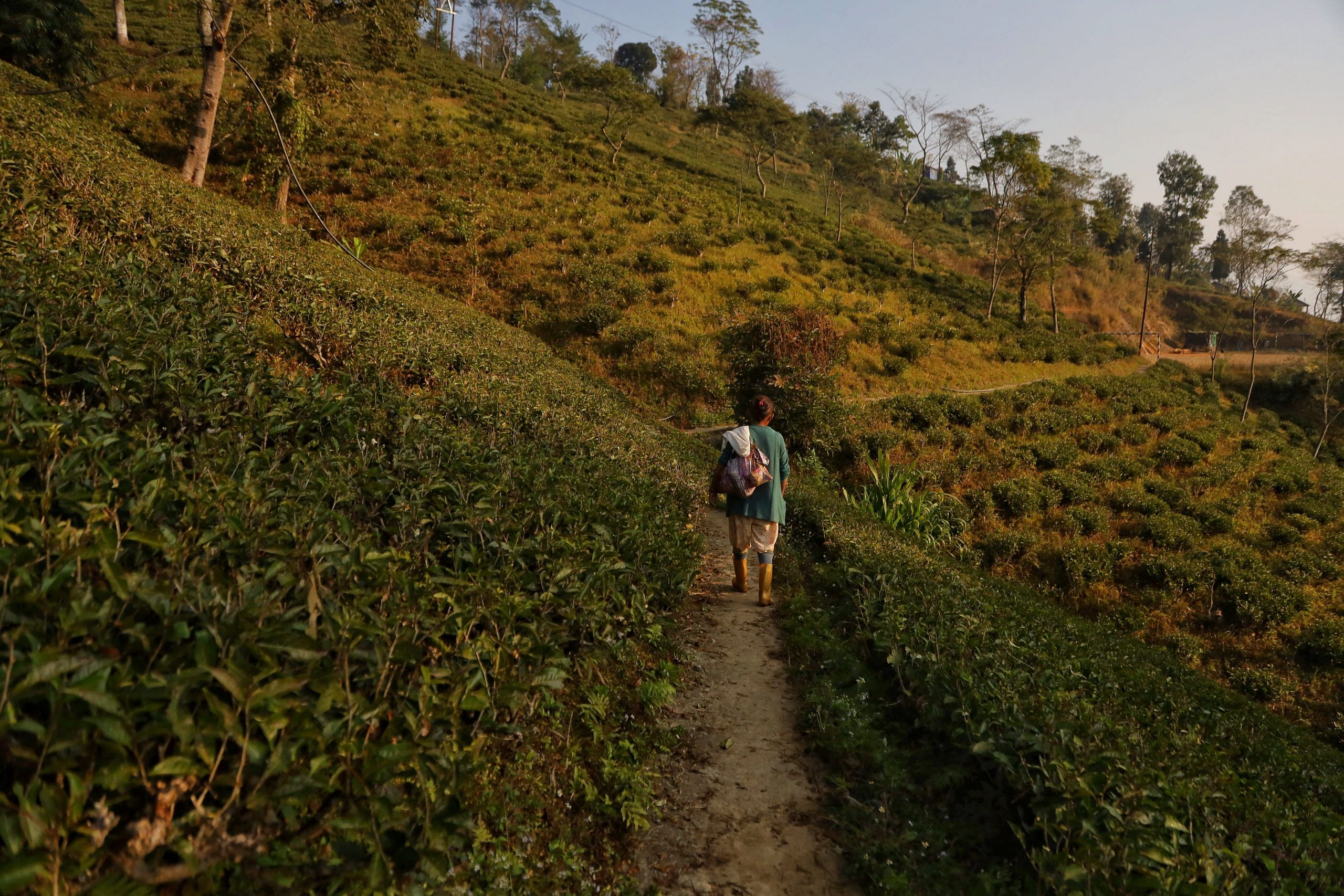
A 2013 study by the Darjeeling Tea Research and Development Centre found that temperatures in Kurseong rose by 0.51 degrees Celsius from 1993 to 2012. During the same period, annual rainfall dropped by 152.50 cm, while relative humidity declined by 16.07 percent. These factors have contributed to the overall decline in tea production along with soil erosion, age of tea bushes and the switch to inorganic cultivation practices.
“It was almost a drought-like situation this year. The heat was so intense that growing tea was tough. Good tea requires a cool climate to flourish. Climate is a bigger global concern and it surely impacts the output of tea,” says Saria.
In 2015, Prime Minister Narendra Modi gifted the late Queen Elizabeth the aromatic Darjeeling variety of Makaibari tea–a subtle reminder of the shared history of tea between the two countries. It was the British who introduced tea plantations in Darjeeling and other parts of India in the 19th century to counter China’s monopoly. Today, more than a century later, trouble is brewing in Darjeeling’s tea gardens as they fight for survival in this dark and distilled world.
(Edited by Prashant)


